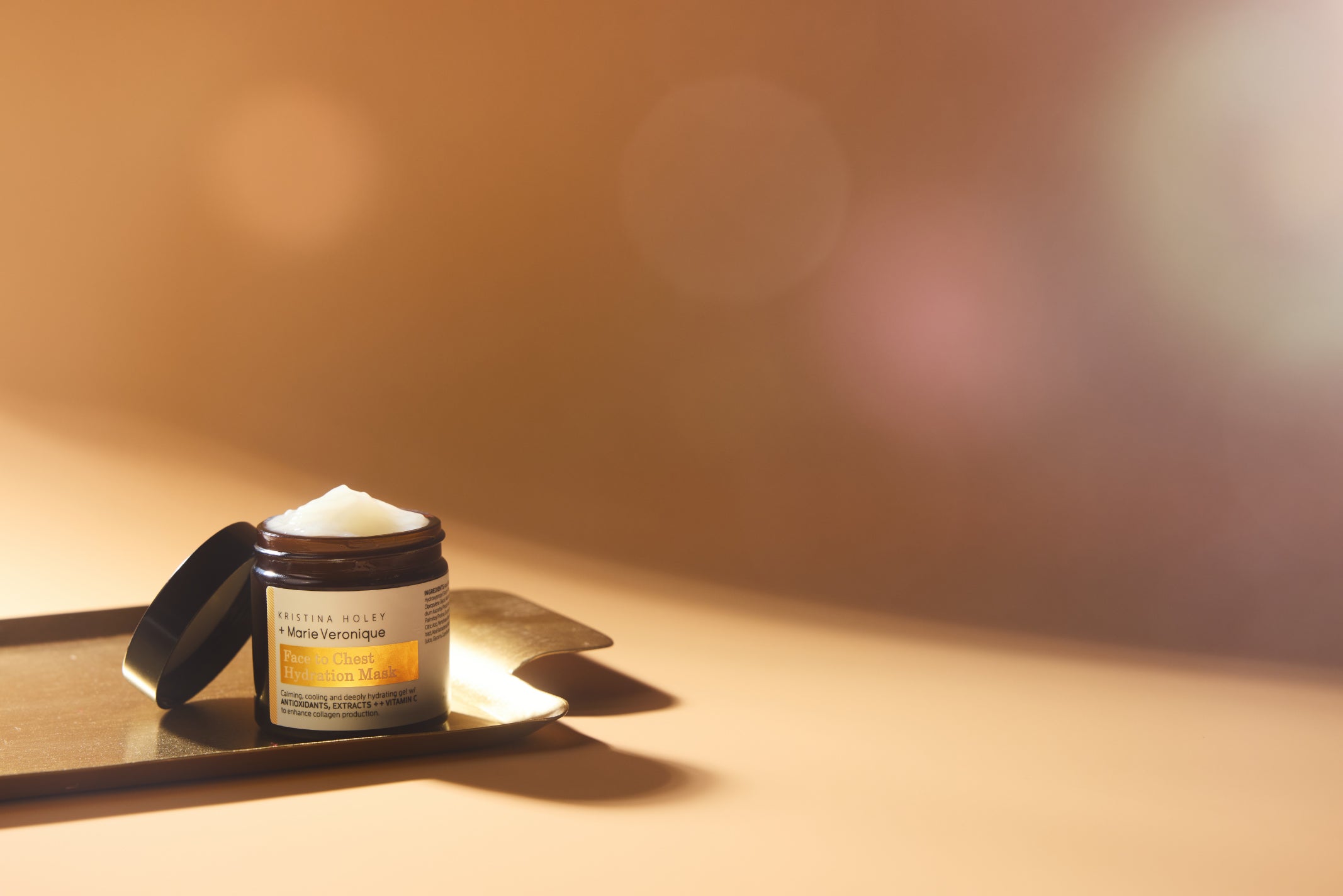20% OFF* SITEWIDE & $25 REWARD CODE ON ORDERS OVER $275**
20% OFF* SITEWIDE & $25 REWARD CODE ON ORDERS OVER $275**
Skin Health
Press
Where To Begin Quiz
Science + Research
Julia Sherman's Recipe for Jammy Squash and Tomato Pasta
by Marie Veronique Skin Experts
As part of our ongoing collaboration with Julia Sherman, we’re sharing a series of recipes exclusively for Marie Veronique. Our last recipe was a versatile green sauce, as encouragement for boosting your daily greens. Our next recipe offers further inspiration, Jammy Squash & Tomato Pasta, a main dish that offers more vegetables, with a twist.
Introducing Barrier Layer Support for the Body
by Marie Veronique Skin Experts
At Marie Veronique our strategic formulations utilize novel surfactants, emollients, and probiotics; deliberately including ONLY ingredients that work synergistically to support barrier function, even the emulsifiers. With this in mind, we are so pleased to introduce our latest innovation and first body product ever: Body Barrier Emulsion.
Beyond Topical: Imperfect Wellness with Daphne Javitch
by Kristina Holey
Beyond Topical is an informative series featuring interviews with authentic Marie Veronique users sharing their expertise across a variety of topics that impact total skin health and wellness. As leaders in their respective fields, we value the informed decisions that have brought these friends of the brand to Marie Veronique Skincare. Because while supporting skin with well-formulated and strategic topicals such as the ones we make at Marie Veronique is imperative, we also want to bring attention to other contributing factors that can influence skin health.
Beyond Topical: Conscious Breath with Ashley Neese
by Kristina Holey
Beyond Topical is an informative series featuring interviews with authentic Marie Veronique users sharing their expertise across a variety of topics that impact total skin health and wellness. As leaders in their respective fields, we value the informed decisions that have brought these friends of the brand to Marie Veronique Skincare. Because while supporting skin with well-formulated and strategic topicals such as the ones we make at Marie Veronique is imperative, we also want to bring attention to other contributing factors that can influence skin health.
Beyond Topical: Fabulous Fiber with Unique Hammond
by Kristina Holey
Beyond Topical is an informative series featuring interviews with authentic Marie Veronique users sharing their expertise across a variety of topics that impact total skin health and wellness. As leaders in their respective fields, we value the informed decisions that have brought these friends of the brand to Marie Veronique Skincare. Because while supporting skin with well-formulated and strategic topicals such as the ones we make at Marie Veronique is imperative, we also want to bring attention to other contributing factors that can influence skin health.
Julia Sherman's Recipe for a Green Sauce
by Marie Veronique Skin Experts
As part of our ongoing collaboration with Julia Sherman, we are sharing a series of recipes exclusively for Marie Veronique. Our first recipe was a savory breakfast, next we shared a reimagined way to snack. Now we offer a simple, flavorful way to boost your daily greens.
Beyond Topical: Lymphatics with Lisa Gainsley
by Kristina Holey
Beyond Topical is an informative series featuring interviews with authentic Marie Veronique users sharing their expertise across a variety of topics that impact total skin health and wellness. As leaders in their respective fields, we value the informed decisions that have brought these friends of the brand to Marie Veronique Skincare. Because while supporting skin with well-formulated and strategic topicals such as the ones we make at Marie Veronique is imperative, we also want to bring attention to other contributing factors that can influence skin health.
How to Counter Heat for Cool, Calm Skin
by Marie Veronique Skin Experts
At Marie Veronique, we consider product formulation as a way to problem-solve. We're always watching the industry, noting trends in the treatment room, as well as at-home skin care. In recent years we’ve noticed an increase in clients who are experiencing symptoms related to heat in the skin, including redness, discoloration, and flushing.
This motivated us to think about all the ways we encounter heat on a regular basis and what to do when it impacts skin health. We’re so pleased to introduce our latest product, FACE TO CHEST HYDRATION MASK.
Browse by Topic
Browse by Topic
Categories
- Acne
- Adult Acne
- Aging
- Anatomy + Physiology
- Ashley Neese
- Bacteriophages
- Barrier Function
- Beyond Topical
- Body
- Circulation
- Collagen
- Company News
- Conscious Breath
- Daphne Javitch
- Dermatitis
- Eczema
- Exfoliation
- Eye Care
- Hydration
- Hyperpigmentation
- Imperfect Wellness
- Ingredients
- Julia Sherman
- LED Light Therapy
- Lisa Levitt Gainsley
- Makeup
- Masks
- Men
- Pathogens
- Pregnancy
- Red Light Therapy
- Retinoids
- Romy Soleimani
- Rosacea
- Skin Health
- Skin Microbiome
- Sun Protection
- Unique Hammond
- Values
- Viruses
- Vitamin C
- Vitamin Therapy
- Winter
- Yogurt


















